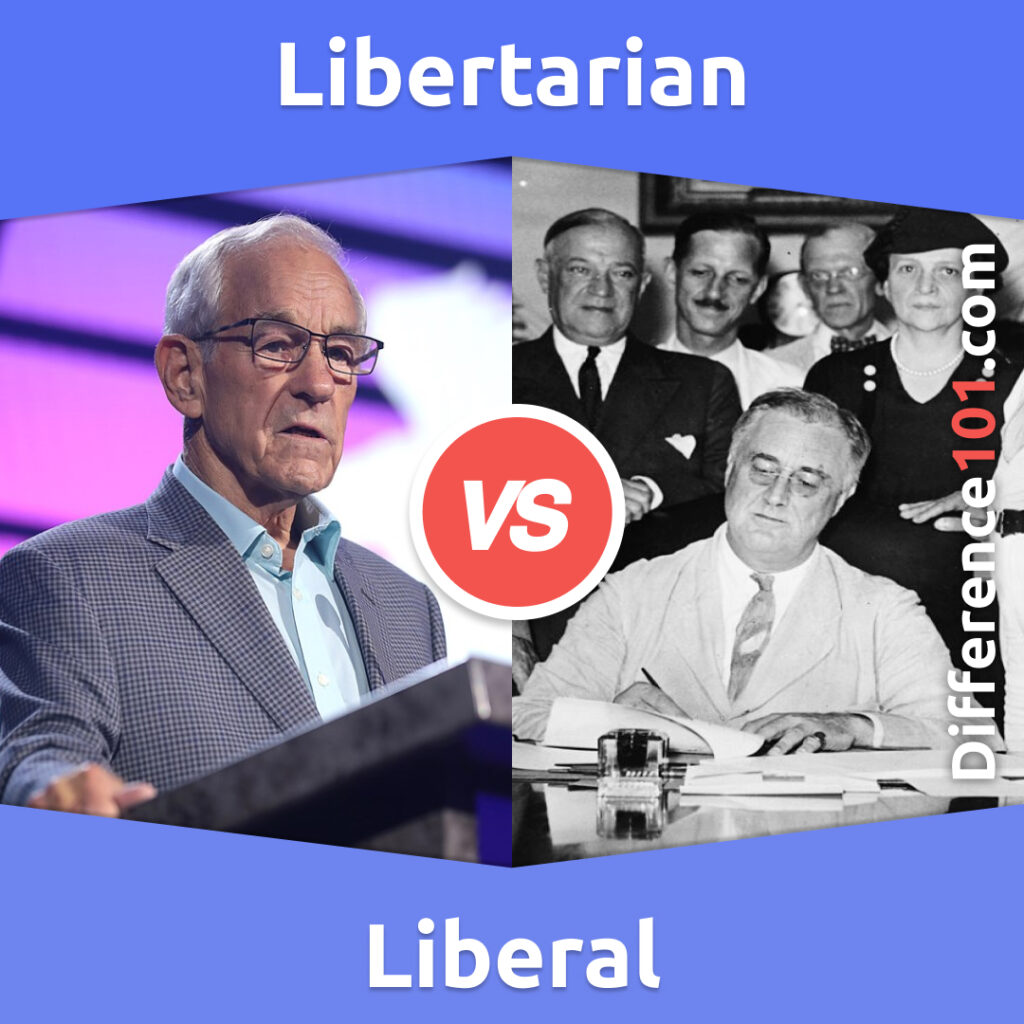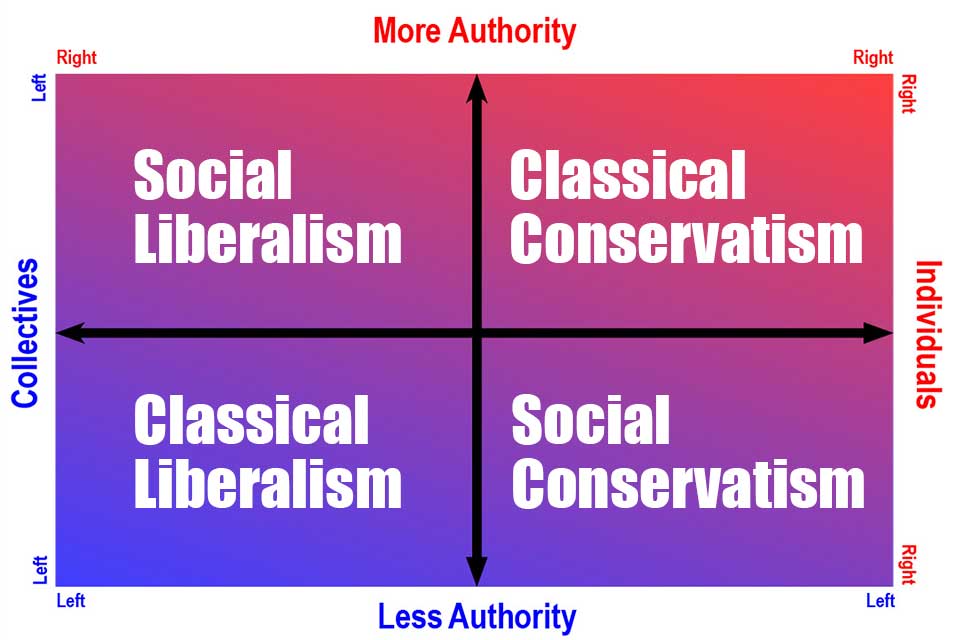Imagine you’re at a party, and the conversation turns political. Someone passionately argues for universal healthcare, while another insists on minimal government intervention. Both seem convinced they’re the “good guys,” but their visions of a good society differ drastically. This is where the terms “liberal” and “libertarian” come into play, representing two distinct approaches to political ideology.

Image: www.difference101.com
While these terms often grace headlines and social media debates, their meanings can be murky. This article aims to shed light on the core differences between liberalism and libertarianism. We’ll explore their historical roots, fundamental principles, and implications for policy and daily life. Understanding these distinctions can foster informed engagement in political discourse and empower you to form your own perspective.
Understanding the Building Blocks
At their core, both liberalism and libertarianism emphasize individual freedom. However, their interpretations of “freedom” and how best to achieve it diverge significantly.
- Liberalism: This ideology champions individual liberties and social justice. Liberals believe in a robust role for government to ensure equality, protect vulnerable populations, and provide essential services. They generally advocate for policies promoting social welfare, affirmative action, environmental protection, and international cooperation.
- Libertarianism: Libertarians also prioritize individual liberty but emphasize limited government intervention as the primary means to secure it. They believe that individuals should be free to make their own choices without government interference, even if those choices might seem harmful to others. This philosophy often leads to support for free markets, deregulation, and a minimalist approach to social welfare programs.
Historical Roots and Evolutions
To grasp the nuances of these philosophies, it’s helpful to trace their roots:
- Liberalism: The origins of liberalism can be traced back to the Enlightenment and the revolutions in America and France. Liberals championed ideas like individual rights, representative government, and limited monarchy. This historical context shaped their advocacy for social progress, individual empowerment, and equality.
- Libertarianism: While liberalism developed earlier, libertarianism emerged as a distinct philosophy in the 20th century. It draws inspiration from classical liberalism, focusing on individual autonomy and limited government. Key figures like Ayn Rand and Robert Nozick championed this philosophy, emphasizing individual self-reliance and private property rights.
The Big Issues: How These Philosophies Manifest
While both ideologies value individual freedom, their applications to specific policy areas can vary vastly. Let’s explore some key areas where their differences are most pronounced:

Image: beatsandmelody.com
1. The Role of Government
- Liberals: They believe that an active and engaged government is essential to protect individual rights and promote social justice. They support government intervention in areas like healthcare, education, and environmental protection.
- Libertarians: They advocate for limited government intrusion, preferring individual responsibility and private solutions. They generally oppose government regulation, taxation, and social welfare programs.
2. Economic Policy
- Liberals: They favor a mixed economy with some degree of government regulation to protect consumers and workers. They often support progressive taxation to redistribute wealth and provide social services.
- Libertarians: They advocate for free markets and minimal government intervention in the economy. They generally support lower taxes, deregulation, and free trade.
3. Social Issues
- Liberals: They advocate for policies promoting equality and justice for all, regardless of race, gender, sexual orientation, or other factors. They often support abortion rights, same-sex marriage, and criminal justice reform.
- Libertarians: They tend to favor individual liberty on social issues, emphasizing personal choice and autonomy. Views on specific issues like abortion and drug legalization can vary, but generally reflect a prioritization of individual freedom over government control.
4. Foreign Policy
- Liberals: They generally support international cooperation, diplomacy, and humanitarian aid. They often advocate for a strong military but favor multilateral approaches to global issues.
- Libertarians: They prioritize non-interventionism, advocating for a more limited military role and less involvement in foreign affairs. They often oppose foreign aid and intervention.
Finding Common Ground and Understanding Differences
While liberalism and libertarianism hold distinct views on numerous issues, it’s crucial to acknowledge that these ideologies are not monolithic. Within each camp exists a spectrum of opinions, and individuals may hold views that align with one or the other philosophy more closely on some issues than others.
Understanding these differences is fundamental to fostering informed political discourse. Instead of resorting to labels and generalizations, it’s essential to engage with diverse perspectives, listening to opposing arguments with an open mind.
What Is The Difference Between A Liberal And A Libertarian
Embrace Critical Thinking and Informed Decision-Making
This article is not meant to endorse one ideology over another. Instead, it aims to empower you with knowledge and understanding. Armed with this understanding, you can engage in political conversations with greater insight, critically evaluate different viewpoints, and make informed decisions about your own political beliefs. Remember, the complexities of political discourse demand intellectual curiosity and an openness to diverse perspectives.

:max_bytes(150000):strip_icc()/OrangeGloEverydayHardwoodFloorCleaner22oz-5a95a4dd04d1cf0037cbd59c.jpeg?w=740&resize=740,414&ssl=1)




